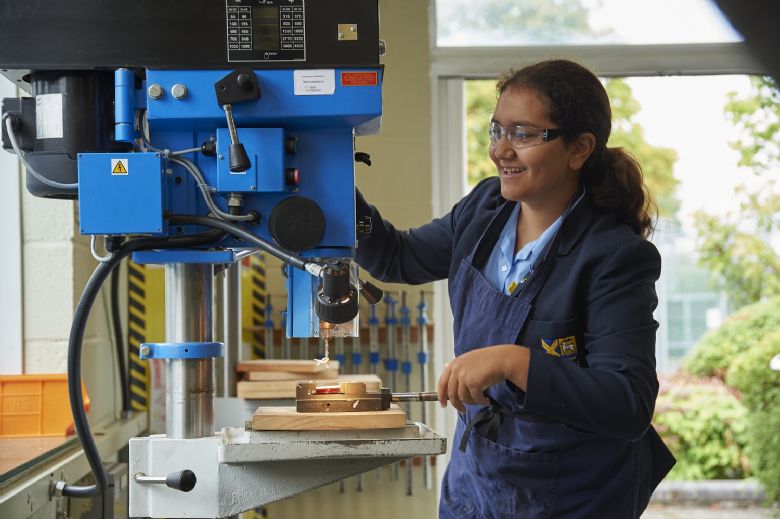KS3 Design Technology
| Curriculum Intent and Overview | |
|---|---|
|
The curriculum covers a wide range of opportunities which run alongside a rich extra-curricular timetable. This includes both creative and STEM elements. Students are extremely proud of their achievements, and they really value the supportive nature and encouragement the department gives them. The curriculum develops and promotes:
|
|
|
|
|

The Department
Curriculum Leader: Miss H Bowman
KS3
What will be studied?
Within Design and Technology students in Years 7, 8 and 9 study Food and Textiles and Design & Technology on a rotation system, where they complete one project per topic each year.
Students have access to specialised textiles rooms where new techniques are taught and applied via a range of projects which include dying techniques, machine sewing, decorative embellishment techniques, construction and pattern making.
Food Science and Nutrition is taught in our food rooms where students learn about a variety of cultural dishes, and the science behind our food. These lessons are very popular, and students enjoy taking home their creations to share with their family after a practical lesson.

Design Technology is taught in specialised workshops and students learn a variety of woodwork and metal work techniques – the use of plastics within design, electronics and circuit boards are also included within topic content.
New technologies and STEAM are an important part of our curriculum, and we use state of the art equipment including CAD/CAM (Computer Aided Design/Computer Aided Manufacture). Product Design is offered at GCSE where students can opt to take a resistant materials or textiles focus, enabling progressing into the engineering and design industries.
What support is needed?
- Encouragement in creativity, and promotion of the importance of STEAM, and the importance of getting girls in Engineering.
- Museums e.g. Science Museum and the Design Museum.
How will they be assessed?
Assessment is carried out via extended projects which are set and marked by teachers. These projects are designed to allow students to demonstrate their knowledge and technical ability in Art. Targets are set for students during the year and progress towards those targets are monitored by frequent discussions with students and by written feedback.